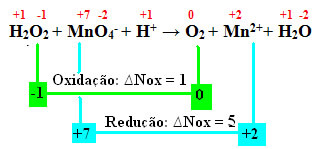Little ones also have their own ways of dealing with tiredness, insecurity, and nervousness.
Even based on their little life experience, they end up developing certain behaviors to deal with these situations. Thumb sucking is one of those calming habits.
In fact, this is an innate behavior, that is, the individual is born knowing how to do this. Even before being born, the baby had already learned to put the little finger in the mouth, and with that it could strengthen the musculature that guarantees the movements of the suction to later be able to suckle.
See too:Children who bite their nails: How to change this habit?
In the first months and years of life, small children can only suck their thumb as a reflex and instinctive act, or as a search for food. But if this behavior persists for years, it has become a habit.
The act of sucking the finger can also be related to the sleep ritual, especially in cases where the child does not use a pacifier and does not drink a bottle to sleep.
The comfort acquired with sucking tends to calm the child, and for this reason he starts to associate the behavior of sucking the finger with the sensations of coziness and security.
But if this act becomes an automatic gesture, a mania, it can lead to more serious problems, emotionally, aesthetically, physiologically and in social interrelations.
The habit of sucking your finger after the first year of life can cause: speech problems, such as delays or alterations; chewing and swallowing difficulties; difficulties in breathing, due to poor closure of the lips.

Related articles
100 short and funny jokes - to die laughing!
USP stands out as one of the top 100 universities in the ranking…
Spaniard runs 100 meters high jump and breaks world record;…
Child who sucks his thumb: is there a way to stop this habit?
The care of parents and other caregivers is essential to effect this change in habits. Simple and practical actions are welcome and can help in this process, such as: wrapping tape, masking tape or adhesive tape on the child's finger, and saying that it hurts; make drawings on the tip of the finger, or paint the nail; offer alternative objects that can produce similar feelings of warmth, etc.
Pediatricians advise against more drastic attitudes, such as passing a product with an unpleasant taste on the child's finger.
If faced with several appropriate attempts by parents and caregivers to intervene in this habit, the child continues to thumb sucking, specialist intervention may be required before the damage caused by sucking can be aggravate.
There are cases that require the monitoring of a multidisciplinary team, including: pediatrician, responsible for the initial assessment and general analysis of the condition; speech therapists, who will intervene in speech, breathing, and chewing and swallowing problems; orthodontist, whether the dental arches have changed; psychologists, in cases that denote emotional factors involved.
Ending the habit of sucking your finger can be even more difficult than taking the pacifier, since it depends, in addition to the interventions from parents and professionals, from the child's own self-control, still very instinctive to master their impulses.
It is also up to responsible adults, who spend more time with the child, to observe when this behavior is repeated: if when she is nervous, irritated, anxious, sleepy, ashamed, afraid, insecure. Identifying the moment that stimulates sucking is necessary to carry out the correct intervention.
It is also important not to scold the child when he has his finger in his mouth, he does not do this to provoke anyone, he has no awareness of the damage it can cause, it is just an attitude of self-regulation, as we have already said, a way of feeling safe.
If it's not bedtime yet (when the child needs the behavior even more), try to distract him with other games so that he forgets about his little finger a little.
And, as in all stages of this process of development and maturation of the little ones, have a lot of patience, tranquility, understanding and affection to guide and help them in the best way, so that all these transitions happen as smoothly as possible, and with the least amount of emotional damage to the child.



